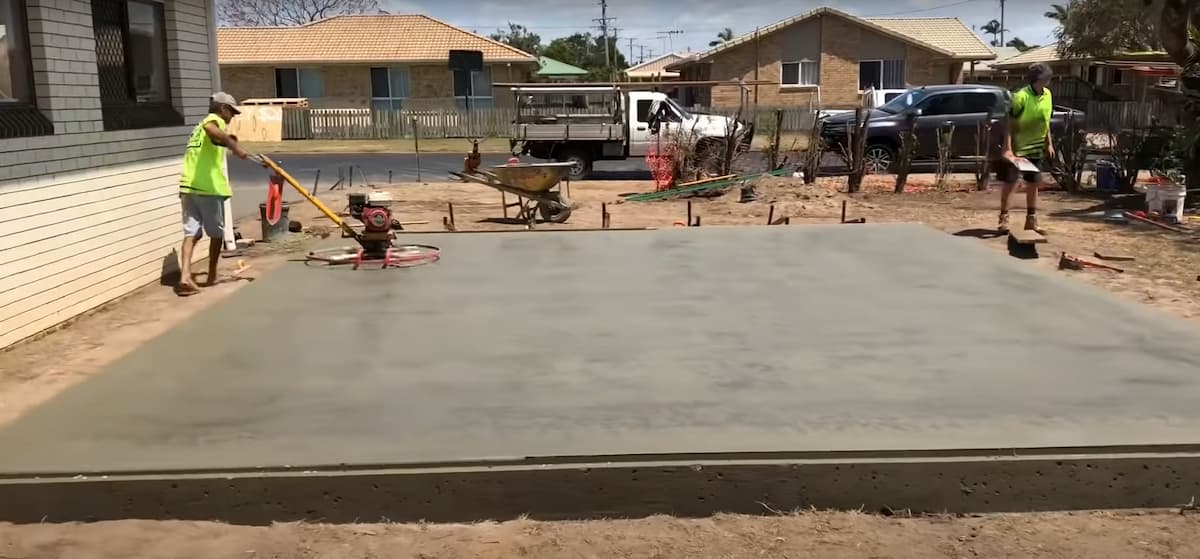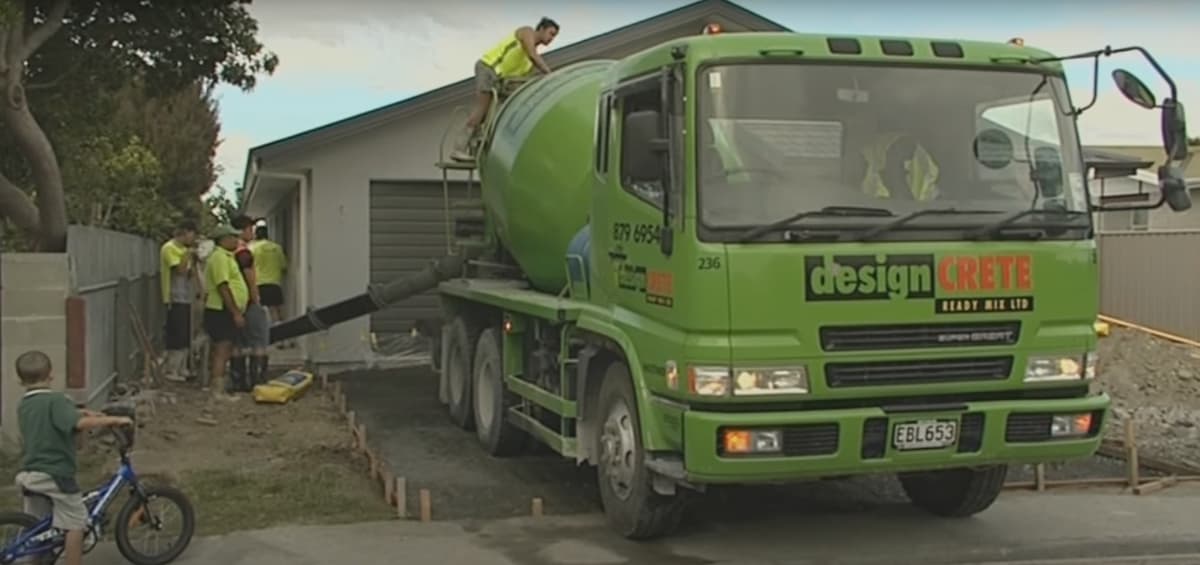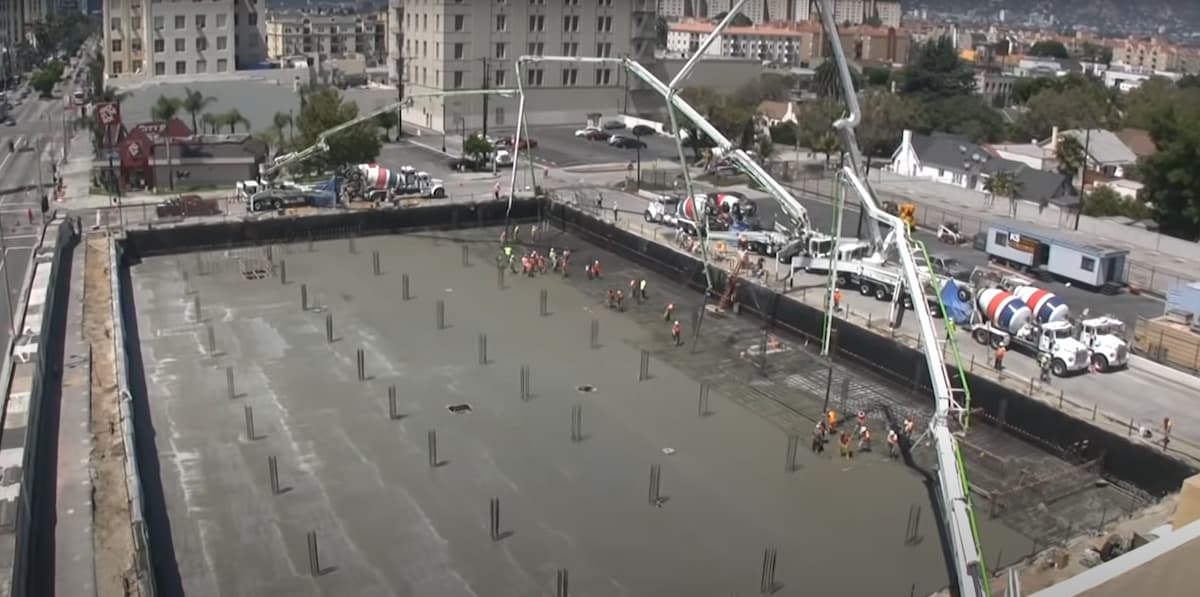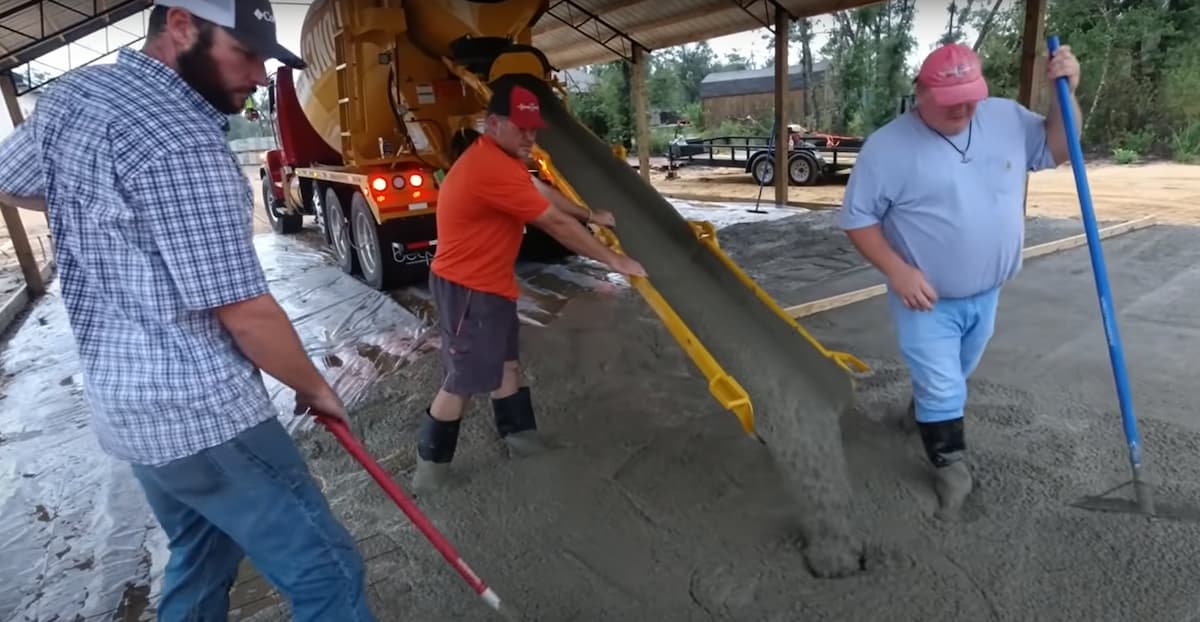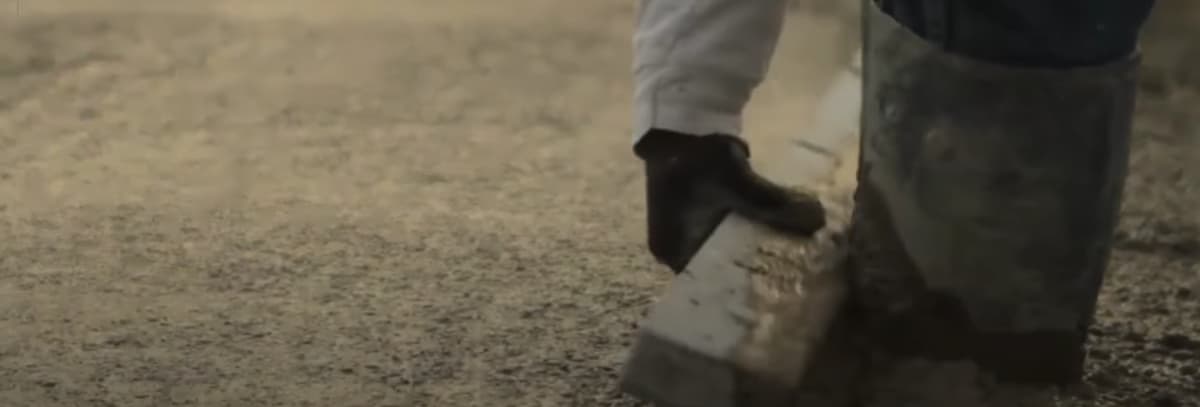
How long does it take concrete to dry? | Concrete curing time for house slabs | How long does concrete take to set indoors? | How long does concrete take to set in 20C? | Does moisture content & water molecules affect concrete set times?
The time estimated for concrete to set & dry depends on several factors. The amount of water added to the concrete mix, the type and strength of cement used, temperature & humidity, all factors in how long it will take the concrete to cure. However, as a general rule for high-strength concrete, it will take approximately one (1) day per 30cm of thickness.
Low-grade concretes such as mass concretes take a longer time to set (average 2 days per 30cm of thickness).
Intense heat can speed up the setting of concrete but too much heat can weaken its strength. Cold weather slows down the setting process & hence higher strength concretes need more time to cure in cold conditions than in warm ones. It is advised not to work with wet concrete if using cement containing special admixtures/accelerators.
How Long Does It Take Concrete to Dry?
The time taken for concrete to dry is dependant on the thickness of the slab. Below are approximate times for various thicknesses of concrete:
| Concrete Thickness | Concrete Cure Times |
| 10cm | 1 Hour |
| 20cm | 2 Hours |
| 30cm | 3 Hours |
| 40cm | 4 Hours |
| 50cm | 5 Hours |
| 60cm+ | 6 Hours to several days |
Concrete Curing Time for House Slabs
Concrete for external use (say, house slabs or floors) is normally given a longer cure time to ensure that the concrete is cured properly before being subjected to the normal weathering conditions outside. Cure times may be up to 28 days in some areas especially if there is high humidity or there is a risk of water ponding on the surface and hence penetrating & getting trapped in the concrete slab.
In very hot humid climates it may take a few more days than usual before exposing the concrete surface gradually after pouring so as not to disrupt the curing process. In such cases, it generally takes 10-21 days for concrete to cure completely.
12 days is recommended for the outdoor curing of concrete slabs laid on the ground. This allows time for the proper development of a normal set. Once this is achieved, the remaining 7 -10 days allow time to cure properly in preparation for carriageway use.
Concrete that has been left unsealed after 24 hours will be vulnerable to frost damage even though it may look like it has a good surface appearance.. Frost resistant admixtures can be added to the mix design which will help prevent damages caused by freezing & thawing cycles.
How Long Does Concrete Take to Set Indoors?
Concrete set indoors usually takes about half as long to cure as concrete that has been exposed to the outdoor elements. This is due to the humidity & moisture (and also pollution) in the air inside the building which tends to slow down the curing process considerably.

Therefore, it is important for concrete workers to take note when working with concrete indoors especially if there are plans of finishing off or exposing it outside afterwards.
Newly poured and uncured concretes should be given more time before having their surface-exposed whilst newer concretes on an ongoing project may also need a few extra days of curing time so as not to affect the overall duration of work.
How Long Does Concrete Take to Set in 20C?
According to a study conducted by Concrete Network, the time taken for concrete to cure (in days) is directly related to the average temperature of that area. This is because temperature affects not only the rate at which chemical reactions occur but also influences how much heat energy is required in order to achieve the desired result. In areas where temperatures are high & humid climates tend to have higher levels of moisture content, curing tends to take longer due to the lower insulation properties of wetter curing concrete, whereas, in warmer and dryer climates like North Queensland & Darwin, curing times are faster compared with their colder counterparts such as Tasmania, although the difference here in Australia is not as great compared to some variation found internationally.
Does Moisture Content & Water Molecules Affect Concrete Set Times?
Many people wonder how much concrete water content affects the set time of concrete. As such the amount of water molecules present in freshly mixed concrete is definitely a major factor that affects the initial curing times of new concretes or ongoing work.
The amount of water molecules present in freshly mixed concrete is definitely a major factor that affects the initial curing times of new concretes or ongoing work. In other words, wetter mixes will generally take longer to cure than drier mixes. The drying out stages is also affected by the presence of large amounts of water contained within newly poured concrete.
When soil mix is added as part of the sand/gravel mix, it may lead to effects on the pour time. This can not only slows down initial set times, but also can adversely affect long term shrinkage and creep when exposed to repeated cycles of freezing & thawing.
The cement powder (for example) hydrates to form a gel-like paste and hence the greater the amount of water present in the mix, the higher volume of paste will be formed. This means that as concrete is exposed to freezing and thawing cycles, these large amounts of water absorbed eventually turn into ice which freezes and expands causing cracks. Hence it’s important not to add too much water after initial mixing because doing so may result in adverse effects.
In summary: concrete with high water content tends to have slow or prolonged set times as well as lower strengths than concrete with low water contents.


